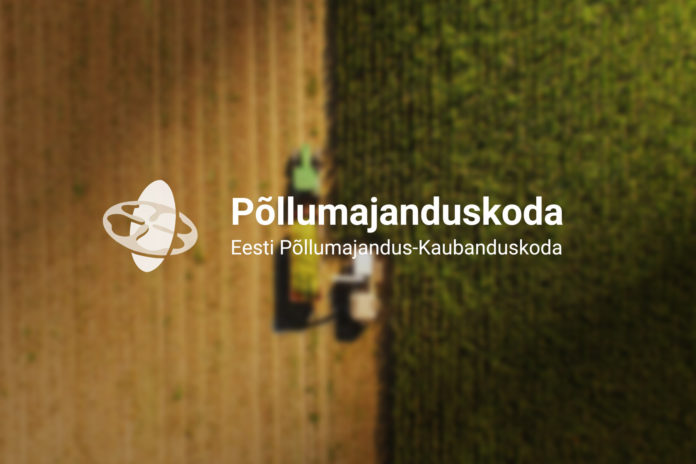In Jelgava, Latvia on February 15th – 16th took place a conference about the latest developments in management of organic fertilizers. The conference was a part of the project “GreenAgri” and it was organized by union “Farmers Parliament” (Latvia) and The Estonian Chamber of Agriculture and Commerce (Estonia). On the first day of the conference the participants visited agricultural businesses, who are engaged in organic fertilizer management and in using manure in biogas production. On the second day Estonian and Latvian experts presented the current environmental requirements and different solutions, how to integrate efficiently organic fertilizers with contemporary technologies and agrochemical methods.
During the project “GreenAgri” a joint Latvian and Estonian expert team introduce to farmers innovative technologies and methods in management of organic fertilizer. 10 Latvian and 10 Estonian farmers implement 2016-2017 different solutions and methods in manure management in their pilot fields. The results will be monitored and evaluated in 2017-2019. Experts and researchers will gather and analyze data from the manure, soil and waters and compose nutrient balance calculations and fertilization plans in order to reduce the possible nutrient losses from the fields. They also provide farmers information about environmentally-friendly and economically optimal solutions for storage and spreading of manure. The conference and farm visits were the first step in launching the discussion between farmers, researchers and governmental organizations on effective management of organic fertilizers both in environmental and agrochemical point of view. One solution is the implementation of “smart farming” practices in Baltic States which enables to reduce nutrient losses and at the same time to improve the production level of farmers using the experience of other countries from Baltic Sea region.
“The impact of agricultural activity is very broad. Unfortunately, there are still some cases, when mistakes are made during the farming process, and nutrient losses into the surrounding environment have been created. Fertilization is one example, when the added value is at the same time accompanied by harm. Therefore, together with Estonian colleagues, we have launched the “GreenAgri” project with a goal to exchange theoretical knowledge and practical experience about organic fertilization, about technologies that are available to mitigate the adverse impact on the surrounding waters on the Baltic Sea and the climate in general. This was a great opportunity to bring together both local and foreign brightest and most experienced minds. Among the participants were farmers, representatives of the Ministries, researchers – it was a full bouquet of the members involved in organic fertilizer management,” so of the conference speaks Maira Dzelzkalēja-Burmistre, vice-president of union “Farmers Parliament”.
The Estonian Chamber of Agriculture and Commerce chairman Roomet Sõrmus believes that manure processing has many advantages comparing to the use of mineral fertilizers: “We want to draw farmer’s attention to water protection and nutrient leakage reduction. From the past experience we can conclude that agricultural activity monitoring, however, is needed in order to effectively prevent bad management examples that unfortunately exist. ”GreenAgri” task is to find the best manure management practices and promote them, both to farmers and society alike. The GreenAgri project is the first step to identify the current situation and develop the best practices. After the farm visits and participants presentations we can imply that manure is not only a problem – it is an opportunity for sustainable management.”
The overall objective of the project “GreenAgri” is to reduce nutrient losses from agriculture in the Baltic States through introduction of innovative and efficient manure management practices, while maintaining the current level of production and competitiveness. The project is part-financed by Central-Baltic Programme 2014-2020.
Presentations


